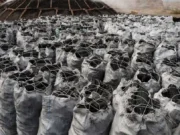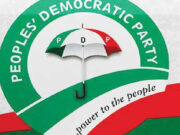Concerns over Naira and Inflation as Money Supply Hits N99.23trn
Nigeria’s money supply (M3) reached a record N99.23 trillion in May 2024, raising concerns about the naira and persistent inflationary pressure. This figure marks a 78.18% increase from N55.69 trillion in May 2023, according to the Central Bank of Nigeria (CBN). On a month-on-month basis, money supply rose by 2.33% from April 2024, and by 7.46% quarter-on-quarter from March 2024.
Economists warn that increased money supply can drive economic growth but may undermine price stability, exacerbating inflation. Despite CBN’s monetary tightening, including over N1.5 trillion in Open Market Operation (OMO) bills since Governor Olayemi Cardoso took office, inflationary pressures persist.
Ayokunle Olubunmi from Agusto Consulting attributes the rising money supply to expanded government revenue, naira depreciation, and improved oil sector performance. He notes that increased money supply could undermine CBN’s inflation control measures and heighten exchange rate pressures. The money supply is expected to rise further as banks meet new capital requirements.
Tilewa Adebajo, CEO of The CFG Advisory, points out that M3 nearing N100 trillion might explain why inflation remains high despite higher interest rates. He suggests that increased government borrowing and expenditure may contribute to the rising money supply.
CBN data shows that currency in circulation rose by 1.02% to N3.96 trillion in May 2024, while credit to the private sector increased to N74.31 trillion. Currency outside banks also saw a 2.77% rise.
Meanwhile, Aliko Dangote, addressing the Manufacturers Association of Nigeria summit, criticized high interest rates, warning that a 30% rate will stifle investment and growth. He emphasized the need for affordable financing to drive industrialization and economic growth, highlighting the manufacturing sector’s potential to address Nigeria’s foreign exchange crisis.
Share News with us via WhatsApp:08163658925 or Email: naijaeyes1@gmail.com
Join Our Social Media Channels:
WhatsApp: NaijaEyes
Facebook: NaijaEyes
Twitter: NaijaEyes
Instagram: NaijaEyes
TikTok: NaijaEyes








































